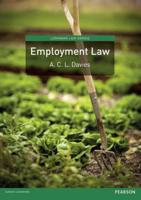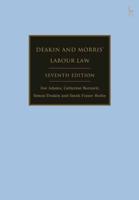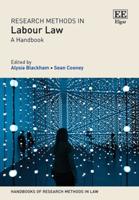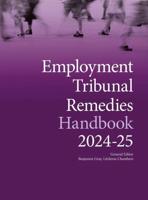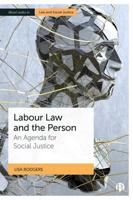Publisher's Synopsis
Aimed at HR Managers and Employment Law practitioners, this book provides readers with an overview of the law underpinning redundancy dismissals, as well as practical guidance on managing the redundancy process. It also gives practical assistance in meeting your organisation's aims of reducing the number of employees, whilst minimising the risk of a successful challenge. The appendices contain template documents for the practitioner to use and adapt.
In short this book will give you tips and tactics to ensure successful outcomes.
The second edition of this book brings updated content to keep you ahead in the employment law area of redundancy. Featuring the latest case law, newly implemented statutes, and up-to-date awards thresholds, this edition ensures you have a basic understanding of redundancy and a practical guide at your fingertips. Additionally, we've introduced a new chapter looking at tax implications and settlement agreements.
ABOUT THE AUTHORS
Philip Hyland has been practising employment law since 1992 and since 2002 in his own boutique employment law firm PJH Law. He is well versed in the law and practice of managing redundancy situations, advising employers for over 30 years on all aspects of redundancy from large scale site closures through to discrete departmental re-organisations. He has appeared as representative at hundreds of Employment Tribunal hearings, a good proportion of which were on claims related to redundancy including: unfair selection, discriminatory selection, redundancy payments and collective consultation. At least two of his redundancy cases have ended up as published precedents.
Collette Moore recently joined PJH Law as a newly qualified solicitor working alongside Philip Hyland. Collette's interest in employment law began several years ago whilst on placement in America during her undergraduate law degree. Her dedication to the area continued throughout her studies on the Legal Practice Course and Masters in Law. This, coupled with several years of practical experience in the legal profession, positions her as a valuable asset and promising contributor to the firm's expertise in employment law.
CONTENTS
Introduction
Chapter One - Surveying the Terrain
Chapter Two - Redundancy Payments
Chapter Three - Declaring Redundancies Below Twenty Employees
Chapter Four - Declaring Redundancies of Twenty or More Employees - Collective Consultation
Chapter Five - Pools, Selection Criteria and Selection
Chapter Six - Individual Consultation
Chapter Seven - Appeals and Grievances
Chapter Eight - Tax and Settlement Agreements
Chapter Nine - Conclusions

